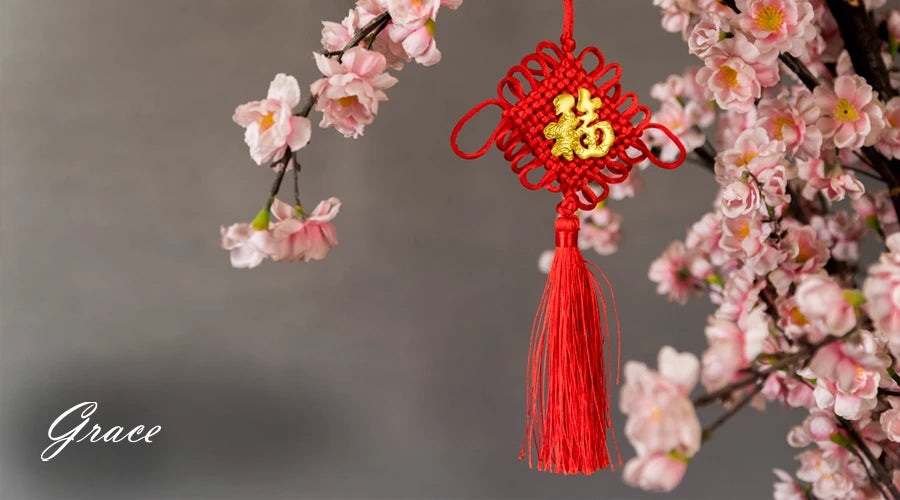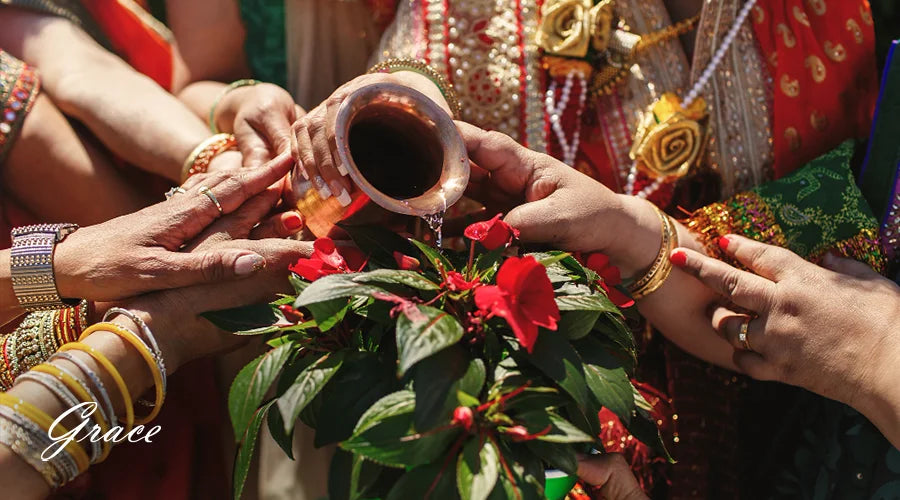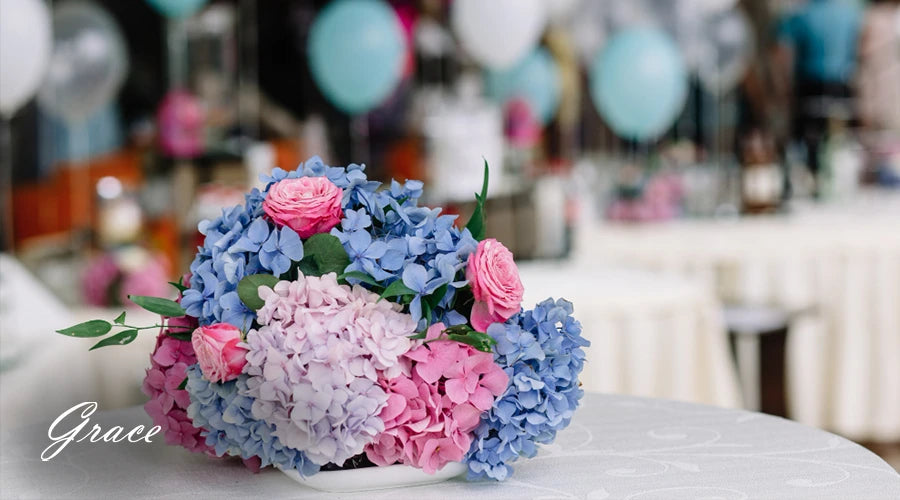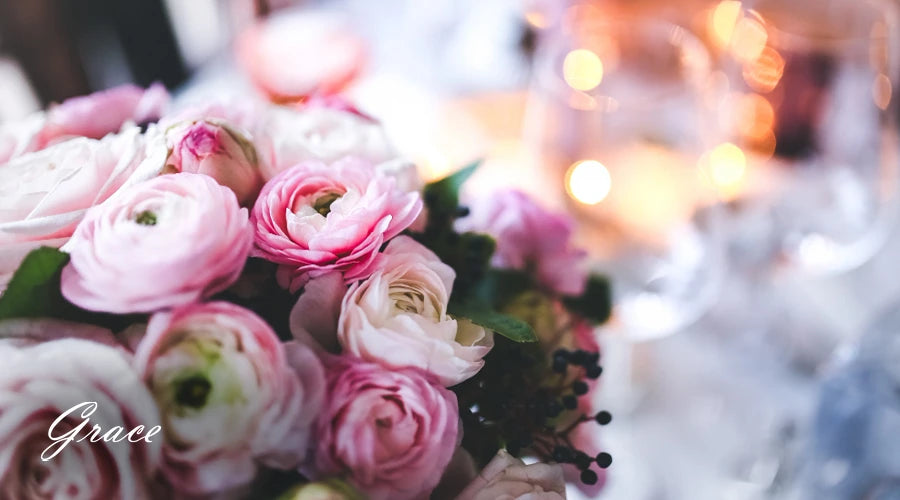Role of Flowers in Cultural Celebrations
Flowers have played an essential part in human cultures, both in the past and today. While delicate, flowers can withstand much. They go beyond just looks, connecting to peoples' deepest traditions, feelings, and meaningful moments. When looking at how cultures use flowers in celebrations, we find meanings, practices, and shared experiences that link people worldwide over time.
The Language of Flowers
Flowers have a way of expressing feelings without words through their bright colors and shapes. Many cultures worldwide have adopted this "language of flowers." Each type of bloom takes on meaningful associations.
In Victorian England, peoples' emotions could be quietly shared using specific arrangements. A red rose conveyed deep love, while a yellow rose spoke of friendly affection. This created intimacy and mystery during socializing.
In Chinese culture, the peony stands for money, success, and respect, making it perfect for special events. Meanwhile, Hindus and Buddhists see the lotus as representing wisdom and cleanliness, giving it great spiritual importance.
Flowers allow people to communicate what words cannot through their lasting impressions and significance to different societies over time.
Rituals and Ceremonies

Flowers play important roles in rituals and ceremonies around the world. In some cultures, they beautify sacred places. In others, they mark life changes or fill events with meaning.
- For Hindus, exchanging floral arrangements during weddings joins souls and families.
- On Mexican Day of the Dead, luminous marigolds guide souls' return to life as people honor the memory of lost loved ones.
- Flowers also carry deep significance in religious observances. Christians see the purity and hope of Easter lilies at that holy time.
- Buddhists revere lotuses in temples as symbols guiding enlightenment and spiritual awakening.
No matter the faith or tradition, flowers serve as more than decoration. They imbue rites, memorials, and beliefs with symbolic meanings that resonate across generations.
Cultural Festivals and Celebrations

Many cultural festivals show how flowers relate to people. These events let us see the variety between groups and our shared connections to nature.
India's Holi sees joyful crowds exchanging flower garlands. The bright orange marigold represents spring's arrival and God's victory.
In Japan, Hanami is a time to value nature's ephemeral beauty. As cherry blossoms drift like snow, people gather under the trees to enjoy fleeting pink petals.
California's Rose Parade stuns with flower-covered floats using millions of roses.
From intricate designs emerges nature's artistry, bringing communities together to celebrate the beauty found in flowers and humanity.
These types of festivals let short-lived wonders be shared by all.
You can read more about cultural festivals and celebrations around the world here: Famous Flower Festivals
Symbols of Love and Romance
Flowers have long been seen as signs of love and romance. Their delicate beauty and fragrance portray care, passion, and affection; Especially the rose - its allure crosses cultures through time as a symbol of devoted feelings.
On Valentine's Day, red roses with soft petals and sweet scents decorate everywhere, stirring emotions of love. People give each other roses to show their innermost thoughts.
Beyond romance, flowers also symbolize family love and lasting ties. In many places, new moms receive floral arrangements celebrating new life's joy and loveliness.
Long-term relationships and anniversary milestones often involve flowers, too, honoring the commitment between partners.
Fostering Social Cohesion
Flowers connect people easily across borders due to their widespread appeal. Cultural celebrations involving flowers unite those from various backgrounds. They appreciate shared traditions and form new bonds.
Community gardens and city flower farms now bring people from all walks together. Individuals cultivate nature's beauty in these spaces and learn from each other. They exchange their cultural knowledge and histories related to specific flowers.
The art of flower arrangement has become a worldwide language, too. It bridges differences and lets people express creativity and care for the natural world. Floral design contests and showcases display cultural variety in interpreting flowers' universal charm despite their fleeting lives.
A Floral Journey Through Emirati Heritage
Flowers fill the United Arab Emirates with bright colors, soft petals blowing in the desert wind. But they signify more than looks - flowers weave deeply into UAE culture and traditions.
Flowers in Emirati Weddings

You can't picture an Emirati wedding without the lovely scent of jasmine and roses. These flowers enhance every part of the joyous event. Bridal bouquets are made with care, each bloom chosen to represent something precious.
Sharing floral necklaces between the bride and groom is a loving tradition. It shows their promise to nurture each other. Wedding spaces are decorated with magnificent floral archways called "mahars". Their detailed designs honor the bride stepping into a new phase, petals shining with hope and joy. Flowers emphasize this celebration through their meanings.
Flowers in Emirati Religious Ceremonies
Flowers hold profound importance in religious ceremonies and events across the UAE. On essential days like Eid, trading floral presents and incredibly fragrant roses represents goodwill, joy, and renewing close relationships.
Inside mosques, you see beautiful bouquets and arrangements decorating the rooms. Their pleasant scents improve the spiritual feeling. These flowers are a soft reminder of nature's beauty, nurturing respect, and closeness to God. They play meaningful roles in such traditions.
The Abu Dhabi Flower Festival
A floral paradise appears each year in Abu Dhabi - the captivating Abu Dhabi Flower Festival. This vibrant event transforms the desert into a rainbow of hues and aromas, celebrating the endless bond between UAE culture and nature.
Visitors see breathtaking floral art, each piece made by skilled designers. Traditional music and dances tie stories honoring long standing flower links to heritage.
Yet this festival offers more than eye-catching displays. Hands-on workshops, contests, and activities let locals and tourists learn floral arts and gardening and connect through understanding cultural traditions related to flowers. People experience nature's beauty together.
Sustainable Practices and Environmental Consciousness
As we honor flowers' cultural role, considering our environmental effect matters. High global flower demand raises issues like pesticide use, water use, and fair work conditions.
Luckily, many festivals pioneer eco-friendly ways, preferring locally farmed organic flowers. Community gardens and city farms guide clean production and caring for nature.
Supporting sustainable methods and ethical sourcing means our traditions celebrate roots while protecting delicate ecosystems for the future enjoyment of nature's beauty. Together, awareness helps balance heritage and home.
Interesting Facts

Flowers hold centuries of symbolic meaning in cultures worldwide:
- Ancient Romans pledged love by exchanging knotted garlands.
- Victorians "spoke" through arranged flowers in the subtle "language of flowers."
- Greeks started the tradition of showering newlyweds with blooms symbolizing fertility.
- Hindus see marigolds as sacred, using them in ceremonies and festivals.
- Japan's cherry blossoms represent fleeting beauty celebrated annually in festivals.
- Mexicans view bright marigolds as guiding souls to loved ones on the Day of the Dead.
- Buddhists see lotuses as purity and enlightenment.
- Greeks first wore floral crowns and wreaths honoring gods in festivals.
- Medieval people believed flowers contained magic powers for healing, love, and protection.
- Roses symbolize love worldwide through different cultures and times.
Learning each flower's deep cultural meaning connects us to traditions and celebrates humanity's diverse experiences through nature's ephemeral wonders.
Final Words
Flowers add beauty that transcends reasons of sight. Since ancient days in diverse places, their presence in rituals and celebrations holds layers of meaning that still connect us today.
Whether in weddings, worship, or messages of love/grief, flowers tie cultures across eras through significance. Their role gives a sense of belonging by representing heritage. Flowers serve as vivid reminders of what joins communities.
We can appreciate how flowers bridge generations worldwide and bring people together. Their colors, scents, and symbolism evoke emotion, creativity, and our shared humanity.
Honoring flowers' cultural role means more than decoration. It protects the values, beliefs, and histories they render alive. Nurturing this relationship helps humanity stay mindful of togetherness despite differences. Our traditions remain rich in meaning when flowers remain central.
Role of Flowers in Cultural Celebrations Frequently Asked Questions
What is the significance of flowers in cultural traditions?
Flowers hold deep symbolic meanings and play vital roles in various cultural traditions worldwide. They are used in celebrations, religious ceremonies, artistic expressions, and as a means of communication, representing emotions, beliefs, and social values.
How do different cultures attribute meanings to specific flowers?
Cultures associate meanings and symbolism with certain flowers. For example, in Chinese culture, the peony symbolizes prosperity and honor. In contrast, in Western cultures, red roses represent love and romance. Understanding these cultural meanings allows for meaningful floral expressions.
Why are flowers important in wedding ceremonies across cultures?
Flowers symbolize love, fertility, and new beginnings. They are used in bouquets, decorations, and rituals, adding beauty and cultural significance to celebrating union.
How do flowers contribute to religious and spiritual practices?
Flowers are used as offerings, decorations, purity, devotion, and enlightenment symbols. They are believed to create a sacred atmosphere and foster a connection with the divine.







Leave a comment